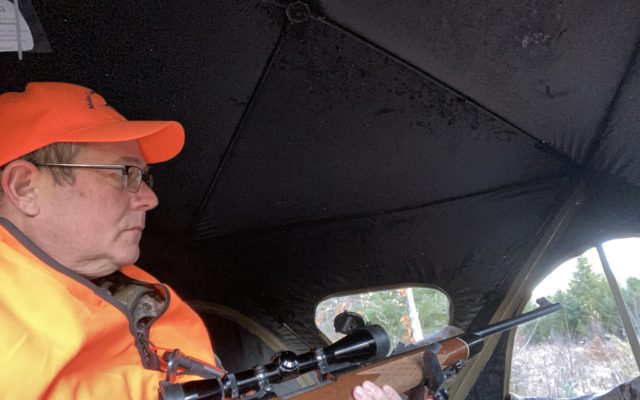
The state can’t get people to kill enough Maine deer
By Pete Warner, Bangor Daily News Staff
The Maine Department of Inland Fisheries and Wildlife has a deer problem.
In some areas of the state, hunters are not harvesting enough female deer to achieve population management goals.
To fix the problem, DIF&W is conducting a comprehensive review of the any-deer permit system under legislative mandate to look for possible ways to increase the harvest and make it more efficient.
There are three primary proposals among several changes being considered. They include changing the any-deer permit system to one that provides for an additional antlerless deer, altering the lottery system to reduce district choices and limit the transfer or swap of permits, and implementing a fee structure.
Hunters may provide feedback in a poll being conducted by the Maine Deer Hunters Facebook group or submit comments in future public hearings.
“Over the past handful of years, we’ve kind of reached a plateau or a threshold where we’re just not able to achieve any significant increase in the harvest of antlerless deer despite issuing a lot of permits,” DIF&W Wildlife Division Director Nathan Webb said.
Maine first implemented the antlerless deer permit system in 1986.
This year, DIF&W handed out a record 153,910 any-deer permits, which allow hunters to tag an antlerless deer or a buck with antlers less than 3 inches in length.
That’s an increase of 43,920 permits over 2020, when hunters harvested 14,020 antlerless deer, including 9,120 adult does and 4,900 fawns.
It won’t be enough to control deer populations.
“Our projections indicate that probably for every 10 of those permits that we issue, we might harvest one adult doe,” Webb said.
The main proposal would change the either sex (any-deer) permit to an antlerless permit. Rather than choosing between shooting a buck and a doe, a hunter could harvest an additional antlerless deer in a specific Wildlife Management District.
The change would be aimed at increasing harvest rates for antlerless deer, but also would mean a significant reduction in the number of permits allotted, according to DIF&W deer biologist Nathan Bieber.
“We don’t want people sitting in their deer stand on opening day and watching all these does go by thinking, ‘oh, if only it were the last day I would take one of these,’” Bieber said. “Instead they could say, ‘I’ve got an antlerless permit now and I can still buck hunt afterwards. I’ll take one of these does and then I’ll just keep hunting for a buck later.”
Hunters would have two tags and could shoot two deer.
Only a small percentage of Maine hunters harvest multiple deer. For that reason, doing away with the any-deer permit and bonus antlerless permits for districts with an overpopulation of deer and fewer hunters would be a benefit.
“We want to incentivize people to actually use the permits we’re giving them,” he said.
To make that practice more equitable for hunters, DIF&W proposes tweaking the lottery process. Applicants would be able to choose only two WMDs in which to hunt an antlerless deer.
That would encourage hunters to think more carefully about where they plan to hunt and have the best chance to harvest a doe.
A related proposal also would eliminate or limit how permits can be transferred or swapped. That might include allowing only youth hunters to be the recipients of such moves.
“Underlying all these proposals is the desire to put permits in the hands of people that are more likely to use them,” Bieber said.
Until now, any-deer permits have been free to all applicants. DIF&W proposes charging a fee for antlerless permits.
“People are going to be less likely to apply for permits if there’s a fee attached and they’re not going to use it,” Bieber said.
The DIF&W is proposing using some of that money to support its efforts to acquire and manage deer wintering habitat in northern and western Maine. That initiative was voted into law in June.
Additional funds also might be generated by selling any excess permits in WMDs where there are fewer antlerless permit applicants than there are permits allocated. Those are currently free and labeled as “bonus” antlerless permits.
That would also give hunters who were not chosen in the antlerless permit lottery an opportunity to target another doe.
Response to the antlerless deer proposals will be considered by the DIF&W, which will then make recommendations based on the feedback. The fisheries and wildlife committee is expected in January to present the final proposals to the Legislature.